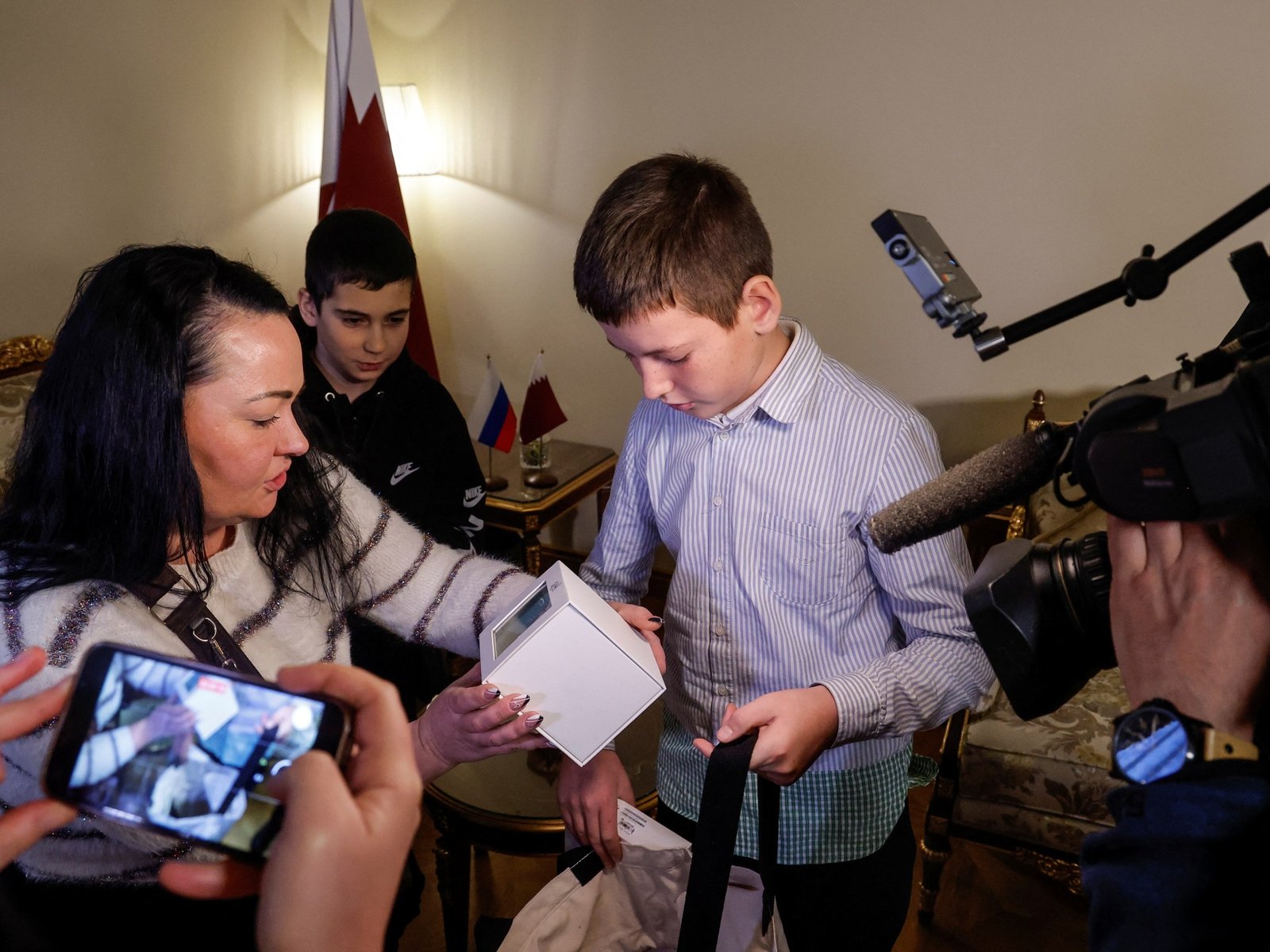Kyiv, Ukraine – Russian President Vladimir Putin is currently under scrutiny for grave allegations involving the "illegal deportation and transfer of children," according to a 2023 arrest warrant issued by the International Criminal Court (ICC) in The Hague.
As ceasefire discussions persisted on June 2, Ukrainian diplomats submitted a comprehensive list of hundreds of children reportedly taken from Russian-occupied territories of Ukraine since 2022. Andriy Yermak, chief of staff to Ukrainian President Volodymyr Zelenskyy, emphasized that the repatriation of these children could serve as a pivotal measure of Russia’s commitment to a peace resolution. “The ball is in Russia’s corner,” he stated.
However, Ukraine argues that the actual number of children abducted is significantly higher, having identified 19,546 cases of minors allegedly forcibly taken from occupied regions since the onset of the conflict. The list of names may not be exhaustive, as many children could be unaccounted for due to losing contact with their families amid the ongoing hostilities.
As of early June, just 1,345 children have returned to Ukraine. The underlying motive for these abductions has raised significant concern. Daria Herasymchuk, an advisor on children’s rights, asserted to Al Jazeera that the targeted removal of children aims to undermine the Ukrainian nation: “If you sever a nation’s ties to its children, you threaten its existence.”
Kremlin officials maintain that Ukraine is merely an “artificial state” lacking distinct cultural and ethnic roots. Meanwhile, reports indicate that Russian authorities managing orphanages are altering the identities of Ukrainian children to sever their connections to their heritage. Herasymchuk highlighted that the attempt to erase their identity is systematic.
The Reckoning Project, an international team investigating alleged war crimes committed by Russia in Ukraine, mentioned the issue of indoctrination. Viktoria Novikova, a senior researcher with the project, pointed out that the goal is to impose a Russian identity on these children, fostering a view that portrays Ukrainians as adversaries to facilitate Russia’s territorial ambitions.
A Yale University research team, also focused on tracking the abducted children, has pointed out that these actions may constitute war crimes and crimes against humanity. They reported a “systematic campaign” wherein children are forcibly relocated from Ukraine to Russia, disrupting their ties to Ukrainian culture and language through re-education and adoption processes. The group has located approximately 8,400 children across various facilities in Russia and Belarus.
In a notable case from 2022, Sergey Mironov, leading a pro-Kremlin political party, adopted a girl named Marharyta Prokopenko after she was seized from an orphanage in occupied Kherson. Her name was reportedly changed to Marina Mironova, underscoring the ongoing pattern of identity alteration.
The abductions are described by Ukrainian officials as methodical rather than random. Children have been taken from parents resisting collaboration with Russian-imposed authorities in occupied regions. During the so-called “filtration” processes, those opposing Russian rule often face interrogation and violence, heightening fears among parents of potential abduction.
Viktoria Obidina, a military nurse who became a prisoner after a filtration check following the siege of Mariupol, expressed her distress over the potential fate her daughter, Alisa, might face. To protect her child, she entrusted her to a stranger who had cleared filtration and guided her to safety in a Kyiv-controlled area after a harrowing 10-day journey.
Ukrainian officials suspect another method of abduction involves sending children from occupied territories to “summer camps” in Crimea or Russian coastal cities, where they remain away from their families.
Desperate parents often attempt to travel to Russia to seek their children, but many face barriers that hinder their return. “Every attempt to retrieve a child feels like a gamble,” Herasymchuk noted. She added that young children sometimes lack the cognitive ability to recall their previous homes, while teenagers may have a better chance of navigating the system.
Ukrainian boys are particularly vulnerable, seen as potential future combatants, often subjected to militarization and pressured into joining Russian military ranks. Facilitated returns have occasionally occurred through third countries like Qatar, which has assisted in repatriating several children.
On the recent announcement, Russia’s children’s rights ombudswoman claimed to have received a list of 339 Ukrainian children, denying allegations of large-scale abductions. “We see that there aren’t 20,000-25,000 children; the list contains only 339 [names], and we will work thoroughly on each child,” Maria Lvova-Belova stated.
Lvova-Belova, alongside Putin, faces charges from the ICC concerning their involvement in the claimed abductions. As peace negotiations between Ukraine and Russia remain stagnant since their last meeting in Istanbul, observers hope for the return of these children as a potential breakthrough in humanitarian efforts.
“Once it becomes clear that no ceasefire discussions are occurring in Istanbul, Ukraine is striving to maximize gains from humanitarian avenues,” remarked Vyacheslav Likhachyov.

